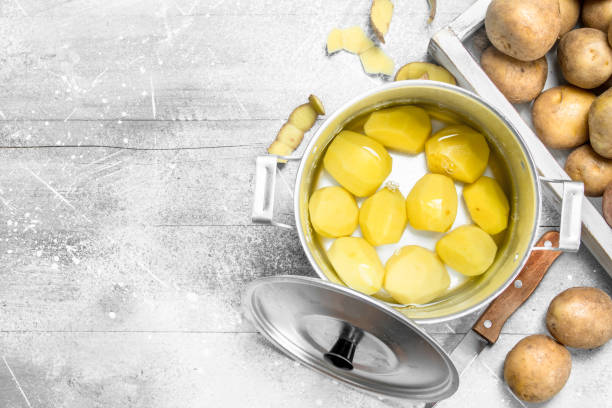CAN YOU FREEZE POTATOES
Potatoes are a versatile staple in many cuisines around the world. They’re used in countless dishes, from mashed potatoes to fries and casseroles. But what if you have an abundance of potatoes and want to extend their shelf life? Can you freeze potatoes? Let’s explore the ins and outs of freezing potatoes to preserve their freshness and taste.
Can You Freeze Raw Potatoes?
The question of whether you can freeze raw potatoes often arises among home cooks looking to store surplus potatoes for future use. The answer is yes, you can freeze raw potatoes, but it’s essential to understand the proper methods and considerations.
Benefits of Freezing Raw Potatoes:
- Preserves freshness for an extended period
- Convenient for meal prep and batch cooking
- Reduces food waste by utilizing surplus potatoes
Risks and Considerations:
- Raw potatoes contain a high water content, which can affect texture and flavor when frozen.
- Without proper preparation, raw potatoes may develop an unpleasant texture or become discolored.
Can You Freeze Cooked Potatoes?
Cooked potatoes, whether roasted, mashed, or boiled, can also be frozen to prolong their shelf life. Freezing cooked potatoes requires different techniques compared to raw ones.
Methods of Freezing Cooked Potatoes:
- Allow cooked potatoes to cool completely before freezing.
- Portion cooked potatoes into airtight containers or freezer bags.
- Consider adding a protective layer of parchment paper to prevent sticking.
Tips for Maintaining Quality:
- Season cooked potatoes lightly before freezing to enhance flavor.
- Avoid overcooking potatoes, as they may become mushy upon thawing.
How Long Can You Freeze Potatoes?
The duration for which you can freeze potatoes depends on various factors, including the type of potatoes, preparation method, and storage conditions.
Factors Affecting Freezing Duration:
- Variety of potatoes (e.g., russet, Yukon Gold)
- Whether the potatoes are raw or cooked
- Quality of packaging and sealing
Preparing Potatoes for Freezing
Before freezing potatoes, it’s essential to prepare them properly to maintain their quality and flavor.
Cleaning and Cutting Potatoes:
- Wash potatoes thoroughly to remove dirt and debris.
- Peel or leave the skins on, depending on personal preference and recipe requirements.
- Cut potatoes into uniform pieces to ensure even cooking and freezing.
Blanching Process:
- Blanching raw potatoes in boiling water before freezing helps preserve color and texture.
- Submerge potatoes in boiling water for 3-5 minutes, then transfer them to an ice bath to stop the cooking process.
Storing Frozen Potatoes
Proper storage is key to preserving the flavor and texture of frozen potatoes.
Proper Containers and Packaging:
- Use airtight containers or freezer bags designed for long-term storage.
- Remove excess air from the packaging to prevent freezer burn.
Labeling and Organization:
- Label containers with the date of freezing and contents for easy identification.
- Organize frozen potatoes by type and date to ensure FIFO (first in, first out) usage.
Thawing Frozen Potatoes
When it’s time to use frozen potatoes, it’s essential to thaw them safely to prevent bacterial growth and maintain quality.
Safe Thawing Methods:
- Transfer frozen potatoes to the refrigerator and allow them to thaw overnight.
- Alternatively, thaw potatoes in cold water, changing the water every 30 minutes to hasten the process.
Precautions to Avoid Spoilage:
- Do not thaw potatoes at room temperature, as it can lead to bacterial growth and spoilage.
- Once thawed, use potatoes promptly to prevent them from becoming mushy or soggy.
Cooking with Frozen Potatoes
Frozen potatoes can be incorporated into a variety of dishes, from soups and stews to casseroles and gratins.
Recipes and Ideas:
- Shepherd’s pie with frozen mashed potatoes
- Hash browns using frozen shredded potatoes
- Potato soup with frozen diced potatoes
Adjustments for Frozen Potatoes:
- Adjust seasoning and cooking times to account for the moisture content of frozen potatoes.
- Consider adding additional ingredients or flavors to enhance the dish.
Conclusion
In conclusion, freezing potatoes is a practical way to extend their shelf life and reduce food waste. Whether you’re dealing with raw or cooked potatoes, proper preparation, storage, and thawing techniques are essential for maintaining quality and flavor. By following these guidelines, you can enjoy the convenience of having potatoes readily available for your favorite recipes.




Post Comment